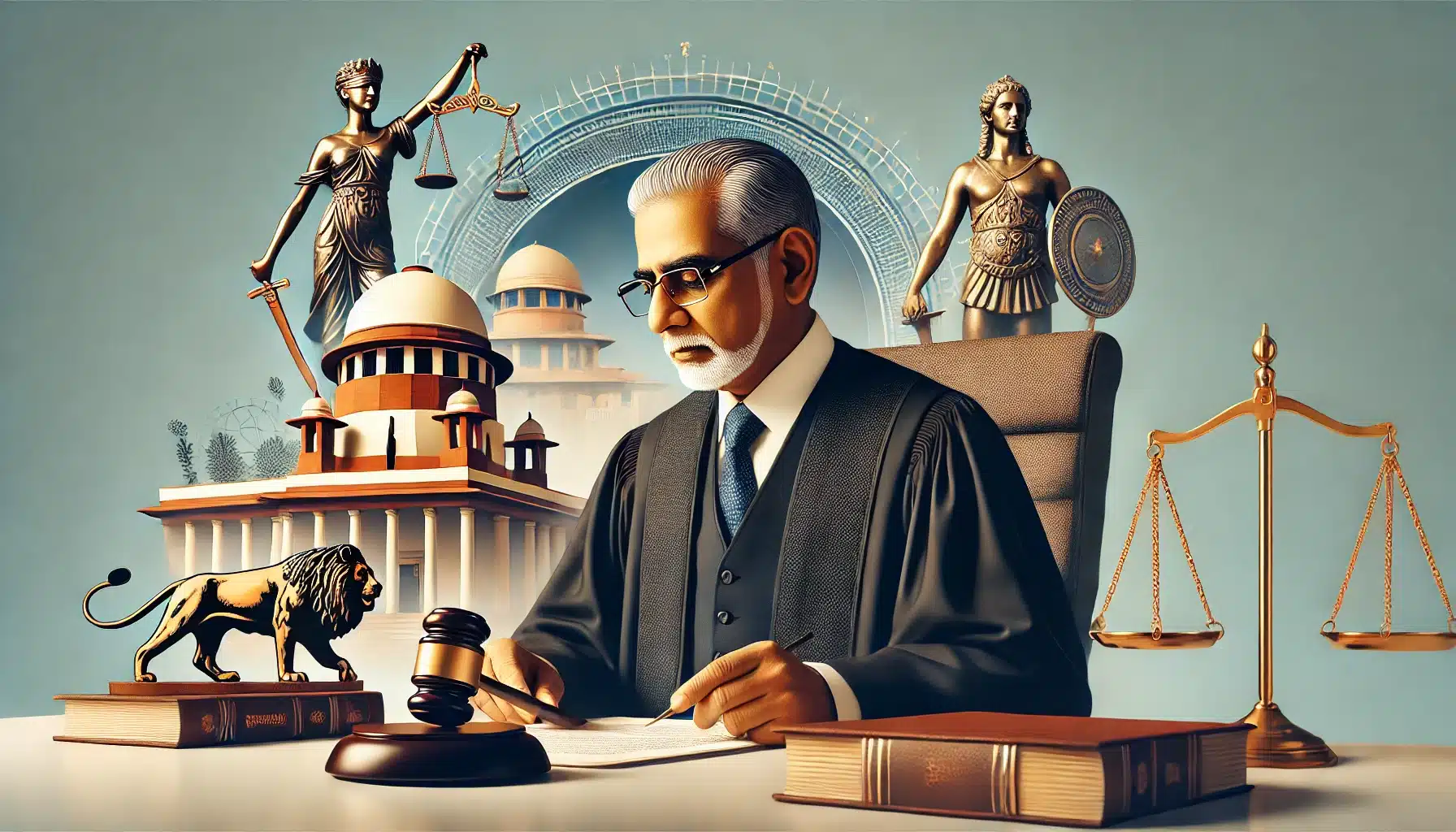Chief Justice of India (CJI) D.Y. Chandrachud has formally recommended Justice Sanjiv Khanna for appointment as the 51st Chief Justice of India. Justice Chandrachud will retire on November 10, 2024, and the process for selecting the next CJI has commenced in accordance with the Memorandum of Procedu

In a pivotal move, Chief Justice of India (CJI) D.Y. Chandrachud has formally recommended Justice Sanjiv Khanna for appointment as the 51st Chief Justice of India. Justice Chandrachud is set to retire on November 10, 2024, and the process for selecting the next CJI has been initiated following the established Memorandum of Procedure. Justice Khanna, the next most senior judge of the Supreme Court, is positioned to succeed Justice Chandrachud in accordance with the seniority norm, marking a significant transition in the Indian judiciary.
Appointment Procedure for the Chief Justice of India
- As per the Memorandum of Procedure governing the appointment of the Chief Justice of India and Supreme Court Judges, the Law Ministry seeks the recommendation of the outgoing Chief Justice regarding the next appointment.
- CJI Chandrachud has proposed Justice Sanjiv Khanna’s name to the Union Government to succeed him.
- This recommendation kicks off the formal process of selecting the next CJI, which requires the Union Government’s acceptance.
About Justice Sanjiv Khanna
- Born on May 14, 1960, Justice Khanna has a distinguished legal career that began in 1983 when he enrolled as an advocate with the Bar Council of Delhi.
- He initially practiced in various fields of law including constitutional law, direct taxation, arbitration, commercial law, company law, land law, environmental law, and medical negligence at the district courts and later at the Delhi High Court.
- Justice Khanna has been involved in several landmark cases, including the interim bail for former Delhi Chief Minister Arvind Kejriwal in connection with the 2024 Lok Sabha elections.
- Notably, he was also part of the Constitution Bench that upheld the abrogation of Article 370 concerning Jammu and Kashmir.
Tenure and Term
- Justice Sanjiv Khanna will hold the position of Chief Justice of India for nearly seven months if his appointment is confirmed, with his tenure concluding on May 13, 2025.
- As per convention, CJI Chandrachud recommended the name of Justice Khanna, the second most senior judge in the Supreme Court, in line with seniority-based succession norms.
Professional Milestones
- Justice Khanna was elevated to the Supreme Court in January 2019 from the Delhi High Court.
- His extensive background includes serving as a Senior Standing Counsel for the Income Tax Department, representing the National Capital Territory of Delhi, and working as an Additional Public Prosecutor and amicus curiae in several significant cases.
- His appointment as an Additional Judge of the Delhi High Court came in 2005, and he was confirmed as a Permanent Judge in 2006.
- Justice Khanna’s elevation to the Supreme Court in 2019 was notable, as he was ranked 33rd in seniority but was chosen based on merit and integrity by the Supreme Court Collegium, then headed by Chief Justice Ranjan Gogoi.
Significance of Justice Khanna’s Appointment
- Justice Khanna’s term as CJI is expected to maintain the course of judicial reforms and uphold the principles of justice, particularly in a politically and legally charged environment.
- His elevation reflects not only his seniority but also the merit and trust placed in him by the judicial system.
Conclusion
With the impending retirement of CJI Chandrachud, Justice Sanjiv Khanna is set to bring his experience, integrity, and legal acumen to the role of Chief Justice of India. His appointment is expected to uphold the principles of justice and ensure the continuation of judicial reforms.





